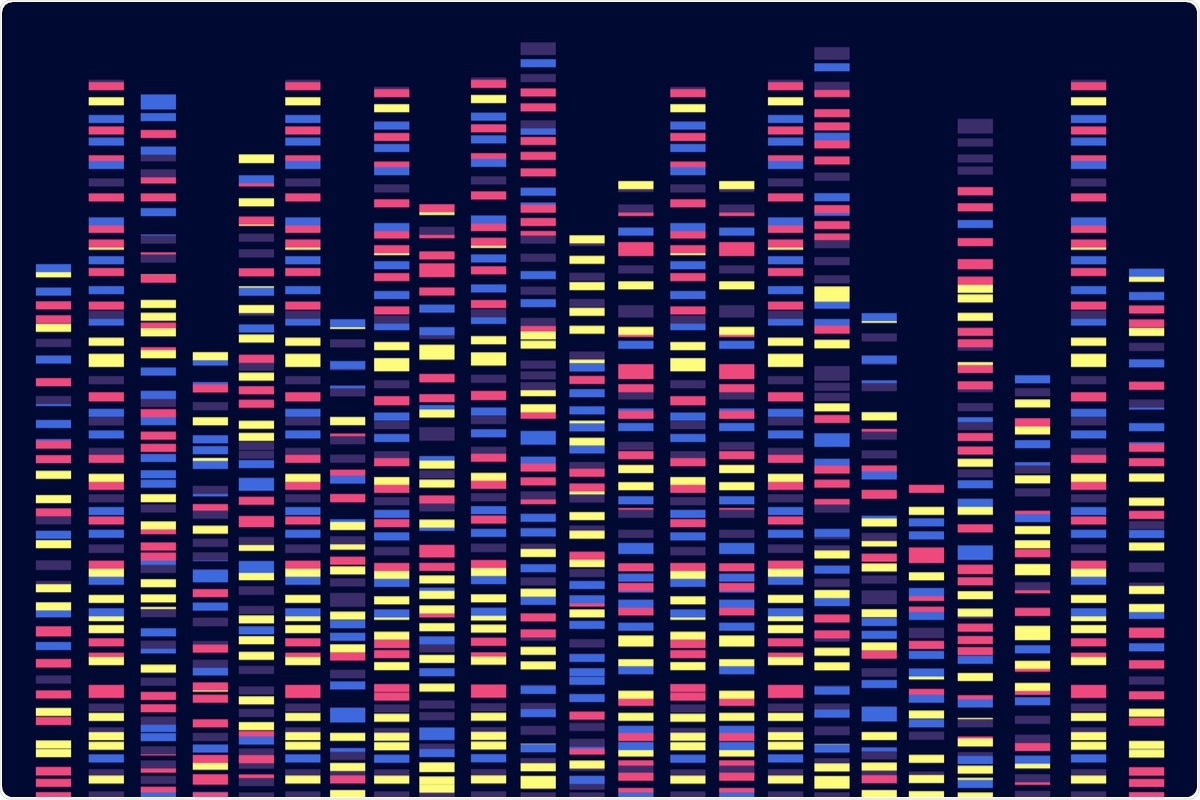As of March 9, 2022, the severe acute respiratory syndrome coronavirus 2 (SARS-CoV-2), which is the virus responsible for the coronavirus disease 2019 (COVID-19), has infected over 450 million worldwide. Although a majority of individuals infected by SARS-CoV-2 experience mild symptoms or remain asymptomatic, COVID-19 has caused more than six million deaths throughout the world.
Several risk factors such as diabetes mellitus, hypertension, cardiovascular diseases, advanced age, chronic respiratory diseases, male sex, ethnicity, germline genetic variations, and sociocultural factors are associated with an increased risk of severe infection and death. However, these factors are unable to explain the heterogeneity in outcomes that are observed with COVID-19.
 Study: Differential Peripheral Blood Glycoprotein Profiles in Symptomatic and Asymptomatic COVID-19. Image Credit: Andrii Symonenko / Shutterstock.com
Study: Differential Peripheral Blood Glycoprotein Profiles in Symptomatic and Asymptomatic COVID-19. Image Credit: Andrii Symonenko / Shutterstock.com
Background
Several biomarkers such as interleukin 2R (IL-2R), IL-6, IL-8, C-reactive protein (CRP), IL-10, pro-calcitonin (PCT), and tumor necrosis factor α (TNF-α) have been used to predict the clinical course of COVID-19. However, none of these biomarkers have been able to accurately determine the prognosis of COVID-19 patients.
Studies on several human leukocyte antigen (HLA) alleles, variants of the angiotensin-converting enzyme 2 (ACE2) receptor and transmembrane serine protease 2 (TMPRSS2) genes, as well as two genome-wide association studies have been conducted to determine the loci associated with disease severity. Additional studies investigating changes in the plasma proteome in association with COVID-19 have also been performed.
Since protein glycosylation is commonly observed in several medical conditions, a study of the glycoproteome in the setting of COVID-19 is warranted. Furthermore, a comparison of the potential profile differences in individuals with severe disease and asymptomatic individuals is of interest.
To this end, a new Viruses study used a recently developed glycoprotein profiling technology platform that couples high-resolution liquid chromatography (LC)-mass spectrometry (MS) with artificial intelligence (AI), neural network (NN)-based high-throughput data processing software for glycoprotein analysis in regards to COVID-19. The authors also compared glycoproteome profiles of individuals with an indolent coronavirus-related common cold illness, individuals with bacterial sepsis, and healthy controls with no history of COVID-19.
About the study
The current study included a total of 115 samples, of which 50 samples were from patients who were hospitalized with reverse-transcriptase polymerase chain reaction (PCR)- confirmed COVID-19, 22 samples were from individuals with no history of COVID-19 but were seropositive for SAR-CoV-2 antibodies, 16 samples were from patients with bacterial sepsis, 12 samples were from patients with common cold-presenting coronavirus, and 15 samples were from healthy individuals.
The serum samples underwent preparation followed by digestion with trypsin. Digested samples were then analyzed by LC-MS.
Study findings
Different biomarker abundances were identified between the individual phenotype groups. Among symptomatic COVID-19 patients and healthy controls, 350 peptides and glycopeptides were differentially expressed. Comparatively, among healthy individuals and those with sepsis, 326 biomarkers were differentially expressed, while 277 overlapped between the two phenotype contrasts.
Among healthy individuals and those seropositive for the common cold coronavirus, 307 biomarkers were differentially expressed. Out of these 307 biomarkers, 153 were also differentially expressed among healthy individuals and both individuals with sepsis and symptomatic COVID-19 individuals. A total of 157 biomarkers were found to differ between healthy individuals and asymptomatic COVID-19 patients, of which 77 showed significant differences among healthy individuals and all the other groups.
A greater abundance of hypersialylated and hyperfucosylated glycan motifs was observed in symptomatic COVID-19 patients as compared to asymptomatic individuals with COVID-19. However, striking similarities were observed among symptomatic COVID-19 and sepsis patients.
A total of 101 biomarkers, 65 with higher and 36 with lower abundances, was found in COVID-19 as compared to sepsis patients. Additionally, 34 features in COVID-19 patients and 46 features in sepsis patients were found to be different from the other groups. Among the 66 glycosylated proteins, 25 were downregulated and seven were upregulated in both COVID-19 and sepsis patients.
A total of 16 glycopeptides and 2 nonglycosylated peptides determined whether the sample belonged to the symptomatic COVID-19 patients. Furthermore, ten canonical pathways were determined that significantly differed among healthy controls and symptomatic COVID-19 patients.
Among these pathways, the acute-phase response signaling pathway was the most significantly enriched pathway. Pathways including coagulation system pathways, complement cascade, and acute-phase response signaling that represented 35 glycoproteins in total were found to differ among symptomatic and asymptomatic COVID-19 patients.
Taken together, the current study demonstrated differences in glycoproteome profiles among symptomatic COVID-19 patients, asymptomatic COVID-19 patients, and healthy individuals. The glycoproteome profile was observed to be similar among symptomatic COVID-19 and sepsis patients. However, certain glycoisoform changes are specific to COVID-19 and help in better understanding the severe course of the disease.
Limitations
In addition to a small sample size, imperfect mathematical adjustments were required to handle both plasma and serum samples. Additionally, blood samples of symptomatic individuals were collected before an immune response was raised, whereas blood samples of asymptomatic individuals were collected after the infection had resolved.
A final limitation is the current study is purely associative and phenomenological; thus, it does not provide inference on causation or pathomechanisms of COVID-19.